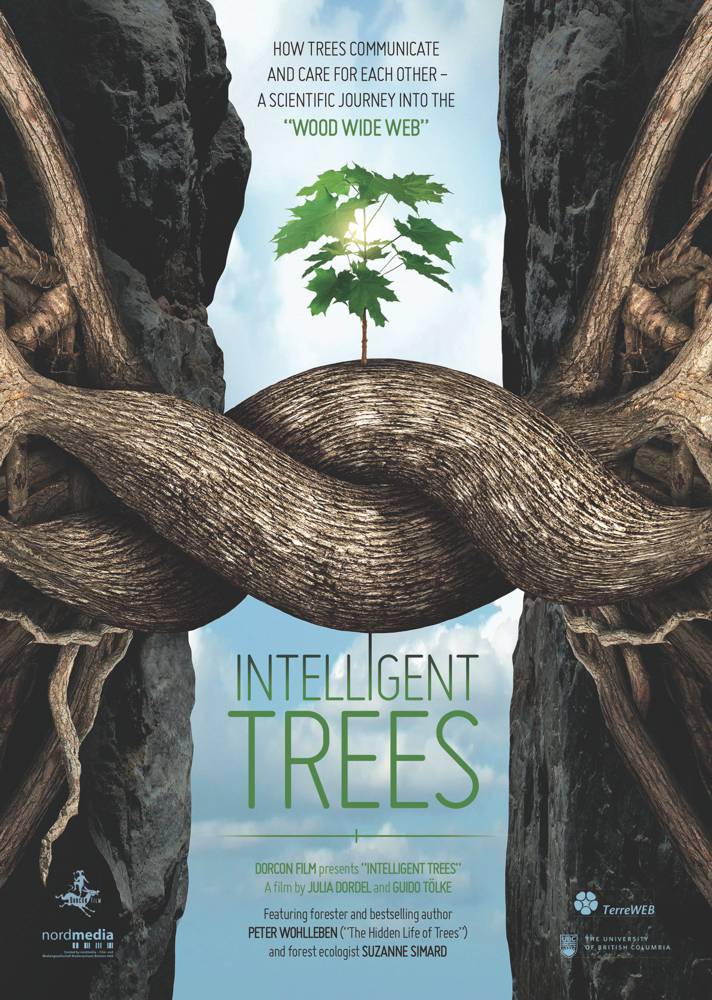Are trees able to communicate with one another? Working independently from each other, the Canadian forest ecologist Suzanne Simard and the German forester warden Peter Wohlleben have discovered that trees are highly individual beings that have feelings, understand friendship, possess a mutual language and look after each other. This documentary examines the different ways in which trees communicate with one another, combining scientific research with the observations of a practising forest warden. The film also looks at how this knowledge may influence our relationship with the forest.
 Just below the forest floor lies the ‘Internet of the Forest’ , a fascinating network of roots used by trees to communicate, exchange information and even pass on experiences. The documentary shines a light into the darkness of this hidden underground community. What relevance do these findings have for our own life and our relationship with the forest?
Just below the forest floor lies the ‘Internet of the Forest’ , a fascinating network of roots used by trees to communicate, exchange information and even pass on experiences. The documentary shines a light into the darkness of this hidden underground community. What relevance do these findings have for our own life and our relationship with the forest?
The 45-minute documentary by Julia Dordel and Guido Tölke (in English with Portuguese subtitles, but also available in German and Spanish) is entitled ‘Intelligent Trees’. It features Peter Wohlleben from Germany and Suzanne Simard from Canada, as well as some of the latter’s PhD students. In particular, the film provides answers to the question ‘Are trees able to talk to and look after each other?’ while also presenting the research methods that it employed. The two protagonists present the basic concept of tree communication and the role of the mother trees. Are trees able to feel fear when they are being attacked by bark beetles or other insects? The film describes the reactions of trees and the messages that are sent out when a tree is attacked, showing how it then warns its neighbours. Are trees endowed with memory and do they pass their experiences to the next generation? This popular science film proves that there can be life after the (supposed) death of a tree. As for the co-existence between humans and the forest, Peter Wohlleben (the author of the best-selling ‘The Secret Life of Trees’) and Suzanne Simard (a biologist working at the University of British Columbia in Vancouver) speak about how the forestry industry abuses forests (due to our lack of knowledge about the behaviour of trees and their needs) and ask what we can do to make things better.
What lessons can be learned from the scientific discoveries presented in the film in relation to the conservation and reforestation of forests? Suzanne Simard and Peter Wohlleben suggest that we should allow trees to grow naturally – old and young, and different species (as opposed to planting monocultures) – enabling them to grow old and look after their offspring (as opposed to chopping them all down at the same age). On the whole, we should treat them with more respect and acceptance, as individual beings and not just as objects that are produced in a factory-like environment.
ECO123 talked to the filmmaker Julia Dordel, a forestry scientist herself. We asked her how she views the findings of the two protagonists in her film?
‘I wouldn’t say that our film is revolutionary, but the science provided by Suzanne Simard and others in her field has the potential to revolutionise the forestry sector – if those responsible agree with the science and the consequences in terms of the way that forestry is generally conducted today.’
Chopping down trees disturbs, weakens, and often destroys, the system of communication between trees. Is it possible to identify the point in time after which such a breakdown is irreversible?
That’s a fascinating question. As far as we know at this point, no study has looked into this. Or, as science tends to say, ‘we need more research’.
Between Saturday 19 December 2020 and Sunday 3 January 2021, ECO123 – in collaboration with the Association Monchique Alerta – Serra Livre de Incêndios – will be showing the film ‘Intelligent Trees’ via the Vimeo platform, exclusively for 150 subscribers and members of the association.
If you’re interested, please register at:
assinatura@eco123.info
info@monchique-alerta.org
 Eco123 Revista da Economia e Ecologia
Eco123 Revista da Economia e Ecologia

